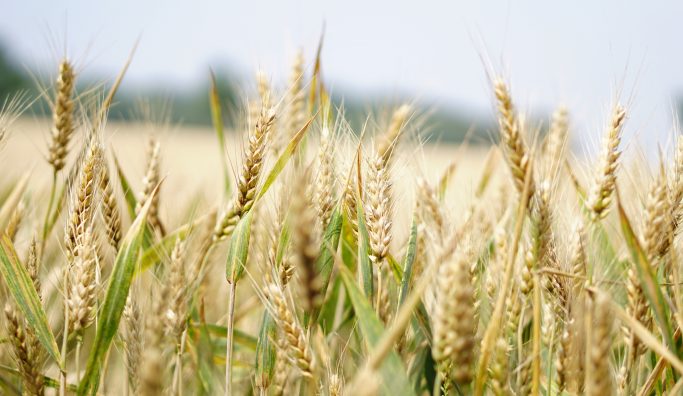Farmer’s Guide to Trucking Regulations available to Ohio Farm Bureau members
The guide includes a farm driver checklist, overview of state and federal regulations and exemptions, CDL qualifications and more.
Read More
 After the challenges members faced with a relentless wet spring, trade disputes and continued low commodity prices in 2019, many thought 2020 couldn’t be worse. Yet, here we are.
After the challenges members faced with a relentless wet spring, trade disputes and continued low commodity prices in 2019, many thought 2020 couldn’t be worse. Yet, here we are.
There wasn’t much time for any of us to prepare for how the coronavirus would change almost every aspect of our lives. In a matter of days, Ohio Farm Bureau put major plans in place for ways we could adjust to help fight the spread of the virus and protect the health and safety of our members and employees, all while maintaining our important mission of supporting Ohio agriculture.
Our Columbus and county Farm Bureau offices may have been closed, but I can’t tell you how proud I am of your Farm Bureau team for finding ways to keep the organization open and functioning, almost seamlessly, from their home offices. The impacts of COVID-19 on agriculture became so heavy and widespread that we had to double-down on our efforts.
The definition of “essential” became important in the early going and putting farmers in that category seemed obvious, but what policymakers didn’t necessarily understand is that so many jobs, from truck drivers delivering seed to implement dealers who fix equipment, are critical for farmers to get their work done. So, one of our first priorities as this crisis began was making sure that state and national leaders listed agriculture as “critical infrastructure” and those within the food supply system as “essential.”
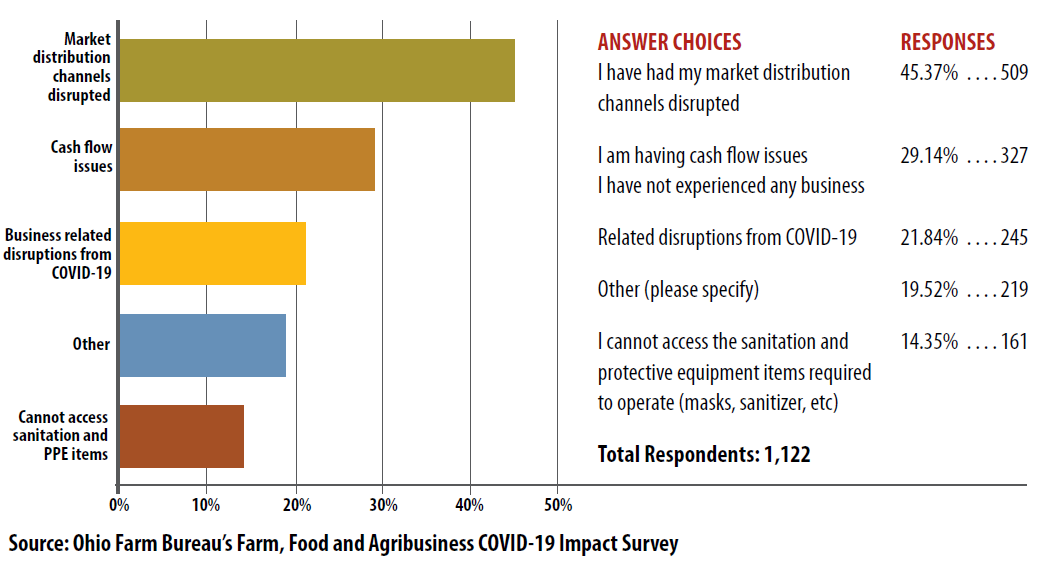
Once that was accomplished, it was time to gauge exactly how members were being impacted by the global pandemic. After receiving almost 1,200 responses to Ohio Farm Bureau’s Farm, Food and Agribusiness COVID-19 Impact Survey, we found out that the pain points in Ohio agriculture were wide-ranging. We discovered some issues in the dairy sector with farmers having to dump milk, while others shared their cash flow challenges or concerns about livestock marketing, transportation, infrastructure and a list of other concerns brought on by this crisis.
So we got to work.
In a partnership with the American Dairy Association Mideast, we had limits on milk at the grocery stores lifted to get milk flowing again. We advocated for more funding of the Small Business Administration’s Paycheck Protection Program and worked with USDA to make sure funds from assistance programs are allocated for all of agriculture and get to where they are needed the most. We pushed for the health and safety of all workers along America’s food supply chain to ensure that processing plants remained operational and store shelves remained stocked.
Every day of the COVID-19 crisis offered new challenges and new information. The communications team kept members up-to-date with the latest developments on how agriculture was being impacted and what resources were available to help navigate these difficult times. I strongly encourage you to sign up for our Buckeye Farm eNews updates, if you don’t already receive them. Members can check on their account or get signed up by emailing [email protected].
Our work is far from over and it will take a conscious effort to continue to act responsibly to keep coronavirus at bay as Ohio’s economy gets back on track. Those in our communities who are most vulnerable to being infected will do what is necessary to stay healthy, but it is truly up to the rest of us to do our part to follow the guidelines in place so that we can all get back to the way of life that we all are hoping for.
Like my page on Facebook to learn more about Farm Bureau’s work on behalf of our members.


The guide includes a farm driver checklist, overview of state and federal regulations and exemptions, CDL qualifications and more.
Read More


ODA will enroll 500,000 acres into the program for a two-week sign-up period, beginning April 22, 2024, through May 6, 2024. Contact local SWCD offices to apply.
Read More

Katie Share of Columbus has been named ExploreAg and Youth Development Specialist for Ohio Farm Bureau.
Read More

Mary Klopfenstein of Delphos has been named Young Ag Professional and Ag Literacy Program Specialist for Ohio Farm Bureau.
Read More

The plan has been updated to give sole proprietors access to more rate stability and a smart solution that offers potential savings on health care.
Read More

The American Farm Bureau Federation, in partnership with Farm Credit, is seeking entrepreneurs to apply online by June 15 for the 2025 Farm Bureau Ag Innovation Challenge.
Read More

Adele Flynn of Wellington has been elected treasurer of the Ohio Farm Bureau Federation and now holds the third highest elected office in Ohio’s largest and most influential farm organization.
Read More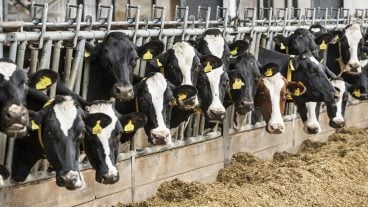
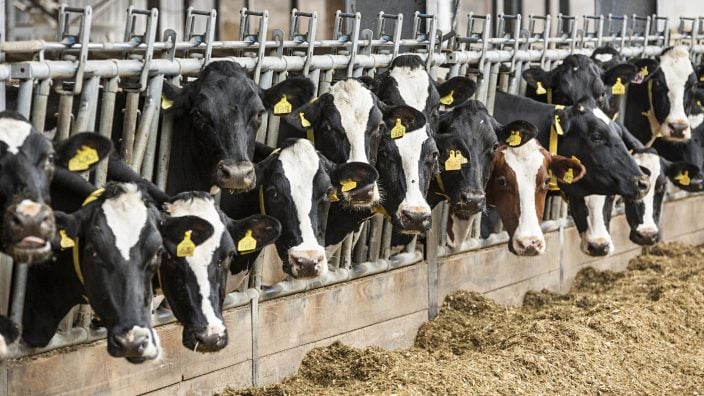
Producers are urged to work with their veterinarian to practice enhanced biosecurity measures and review and limit cattle movements within production systems.
Read More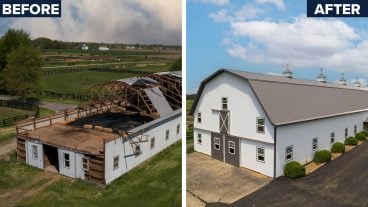
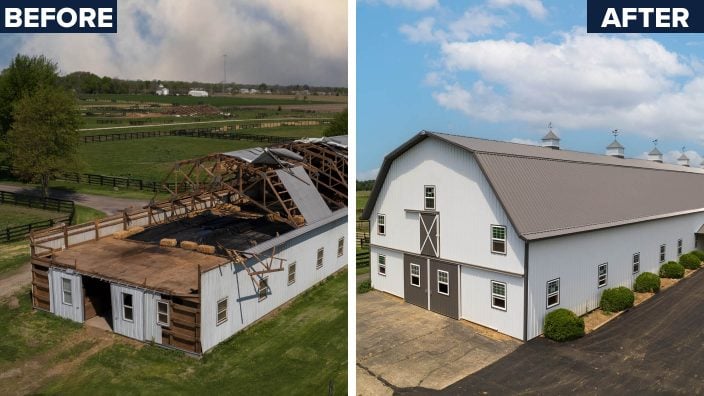
The changing seasons bring with them the need to thoroughly inspect pole barns for any damages that may have occurred during the winter months.
Read More
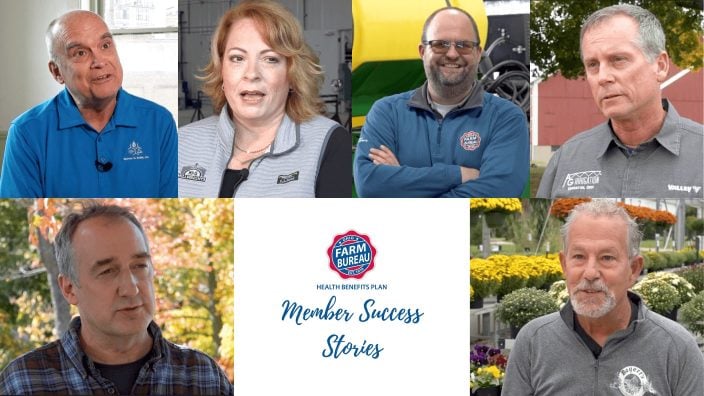
Hundreds of Ohio businesses and sole proprietors are raving about Ohio Farm Bureau’s Health Benefits plan with lower, predictable costs and easy enrollment and administration options.
Read More